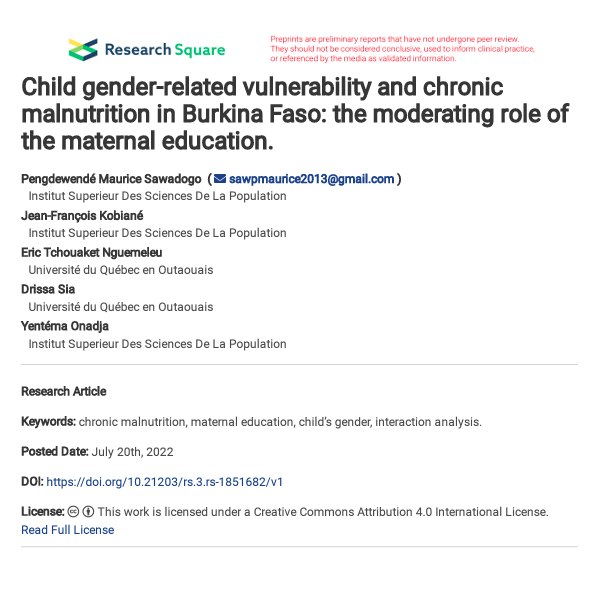Child gender-related vulnerability and chronic malnutrition in Burkina Faso: the moderating role of the maternal education
Background: Chronic malnutrition in children is a growth disorder resulting from a prolonged lack of nutrient intake. It is a widespread health issue in West and Central Africa where it affects one third (1/3) of children under five (05). This paper highlights the mitigation of child’s gender-based chronic malnutrition risk through maternal education.
Methods: This paper uses data from the 2010 Demographic and Health Survey in Burkina Faso. Univariate and bivariate descriptive analysis techniques, multilevel logistic regression and interaction analyses were used. Analyses were conducted separately for children aged 0-5 months, 6-23 months and 24-59 months.
Results: The results showed that boys are at greater risk of suffering from chronic malnutrition than girls, even after considering control factors. This gender-based effect was observed in children in the 6-23 month and 24–59-month age subgroups. Furthermore, the interaction analysis showed that this gender effect is more pronounced in and even specific to children of uneducated mothers because of the latter’s inappropriate hygiene and sanitation practices.
Conclusion: These results suggest that intensifying policies to encourage girls’ schooling and strengthening hygiene and sanitation measures among children would reduce or even eliminate gender-based inequalities in chronic malnutrition among children in Burkina Faso.

